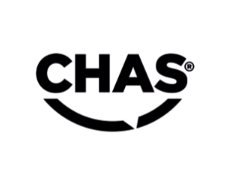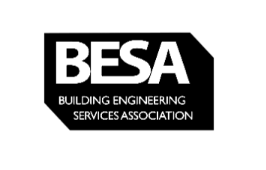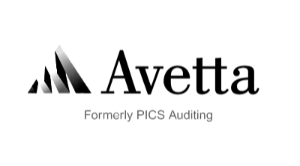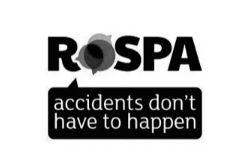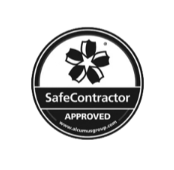In the UK, any company or organisation that produces hazardous waste must adhere to hazardous waste disposal regulations. Failure to follow these regulations can lead to serious consequences, including some heavy fines and even putting the health of your staff or the environment at risk.
Navigating hazardous waste regulations can be overwhelming, which is why phs has put together this easy-to-understand guide.
Questions this guide will answer:
- What is classed as hazardous waste?
- What are some examples of hazardous waste?
- Are there any key pieces of hazardous waste regulation?
- How do I stay compliant with hazardous waste disposal?
- How to dispose of hazardous waste?
What is classed as hazardous waste?
Hazardous waste can be used to describe any waste materials or substances that are a danger to humans, animals or the environment. It can come in any form; solid, liquid or gas. In Scotland, hazardous waste is referred to as ‘special waste’.
Examples of hazardous waste:
- Asbestos
- Pesticides and herbicides
- Chemicals and automotive wastes including brake fluid and printer toner
- Solvents, paints and dyes
- Batteries and battery acid
- Oils (excluding edible oils) including car oil
- Waste containing mercury including fluorescent tubes and thermometers
- Old, damaged equipment which contains ozone depleting substances, such as refrigerators
- Containers of hazardous waste
Hazardous waste should not be confused with dangerous healthcare waste such as sharps disposal, but both need to be handled carefully, responsibly and in compliance with relevant legislation. If you are looking for more information on sharps regulations, read this phs guide.
Hazardous waste regulations in the UK
Hazardous waste disposal in the UK is taken very seriously. Key pieces of regulation must be followed, and failure to follow this can lead to serious fines or a prison sentence.
The regulations you’ll need to comply with vary slightly depending on where you are:
- England and Wales: The Hazardous Waste Regulations 2005
- Scotland: The Special Waste Regulations, 1996 (amended in 2004)
- Northern Ireland: The Hazardous Waste Regulations 2005
Summary of hazardous waste regulations
Hazardous waste regulations outline the required systems hazardous waste producers must follow to remain compliant and safe.
The regulations place a responsibility on organisations to ensure any hazardous waste produced or handled causes no harm or damage. This includes classifying the type of waste to help identify its properties and potential risk it can cause, storing it safely, collections by an authorised waste carrier and methods for final disposal. Hazardous waste is not permitted to be disposed with non-hazardous waste at the same landfill site. Hazardous waste must also be tracked along the entire process which helps ensure accountability, traceability and that regulations are being adhered to.
There are additional requirements on an organisation depending on your role in the waste process, for example if you produce or store waste (the waste producer/holder), if you collect and transport waste (the waste carrier) or if you are the final receiver who disposes of the waste (the waste consignee). For the purpose of this guide, we are focusing on role of the waste producer but for more details on other roles, visit the government website.
How to classify hazardous waste
When dealing with potentially hazardous waste, you firstly must classify it to determine if it is indeed hazardous. This can include checking the waste code of the product and reviewing the manufacturers’ product safety data sheets. Products will often display symbols to indicate it is hazardous.
As part of the classification process, you will need to identify the appropriate waste classification code, specifying if the waste is hazardous and list name of the product(s). You must also detail the type of premises where the waste produced as well as the process in which it was produced.
For more help in classifying hazardous waste, refer to the technical guidance.
How to store hazardous waste
Hazardous waste must be stored and handled in a way that is safe, creating no risk of harm to any person or the environment. It is illegal for hazardous waste to be mixed with non-hazardous waste or other types of hazardous waste. Therefore, a process will need to be set up to keep hazardous waste separate from your regular waste and ensure it is properly contained. Hazardous waste must be stored securely and in containers which will keep it contained so it cannot leak or escape in any way.
How to properly dispose of hazardous waste
As hazardous waste carries a risk of damaging human health and the environment, it must be stored and disposed of safely, responsibly and in a legally-compliant manner. Due to it being highly regulated, hazardous waste can only be handled and disposed of by authorised companies.
To dispose of hazardous waste, you need to find an authorised supplier of waste disposal services or clinical waste disposal services to handle your collections. Your waste carrier must be registered as well as having environmental permits for any waste sites and it is your responsibility to check these are in place.
To move hazardous waste, you will need to complete a consignment note which follows the journey of the waste until it reaches its final disposal point. Consignment notes must be filled in by all parties; the waste holder, carrier, consignor (the person who passes the waste to the carrier) and the consignee (the person who receives the waste for disposal).
Make sure to keep all records and consignment notes for three years.
Depending on the type of product and its condition, some hazardous waste can be recycled. Recyclable materials such as metal and plastic can be salvaged during this process before disposing of any hazardous parts separately. Some hazardous waste, including certain chemicals, can be treated to make them safe before final disposal. If it cannot be treated, waste will either be sent to a designated hazardous waste landfill site or be incinerated.
Hazardous Waste Registration
You may previously have had to register with an environmental body if your organisation produces a defined amount of hazardous waste (over 500kg). However, legislation has changed in recent years to simplify the hazardous waste disposal process.
If you produce waste in England, Scotland or Northern Ireland, you do not have to register as a hazardous (or special) waste producer. However, if you produce or store more than 500 kg of hazardous waste per year in Wales, you must register as a hazardous waste producer with Natural Resources Wales each year.
Why is hazardous waste disposal important?
As a business owner or executive, you have something known as a ‘duty of care’ to your employees and customers and other visitors to your organisation.
Improper management of hazardous waste and hazardous waste bins can lead to long-term sickness and disease, illness, injuries, and even deaths as well as causing environmental damage. If this occurs in your workplace as a result of the mismanagement of dangerous waste, you will be held responsible, and could face a fine or a prison sentence.
A cost-effective solution with phs
As the UK’s leading hazardous waste collection, management and disposal provider, phs can provide you with a fully-managed waste solution. This ranges from offering suitable waste containers, waste collections by accredited staff at your convenience, and disposing of hazardous waste safely and legally. phs can also advise on your duty of care and relevant regulations so you can be assured your organisation is doing the right thing, allowing you to focus on the day-to-day operations of your business.
To discuss your waste management needs, get in touch with phs.





























